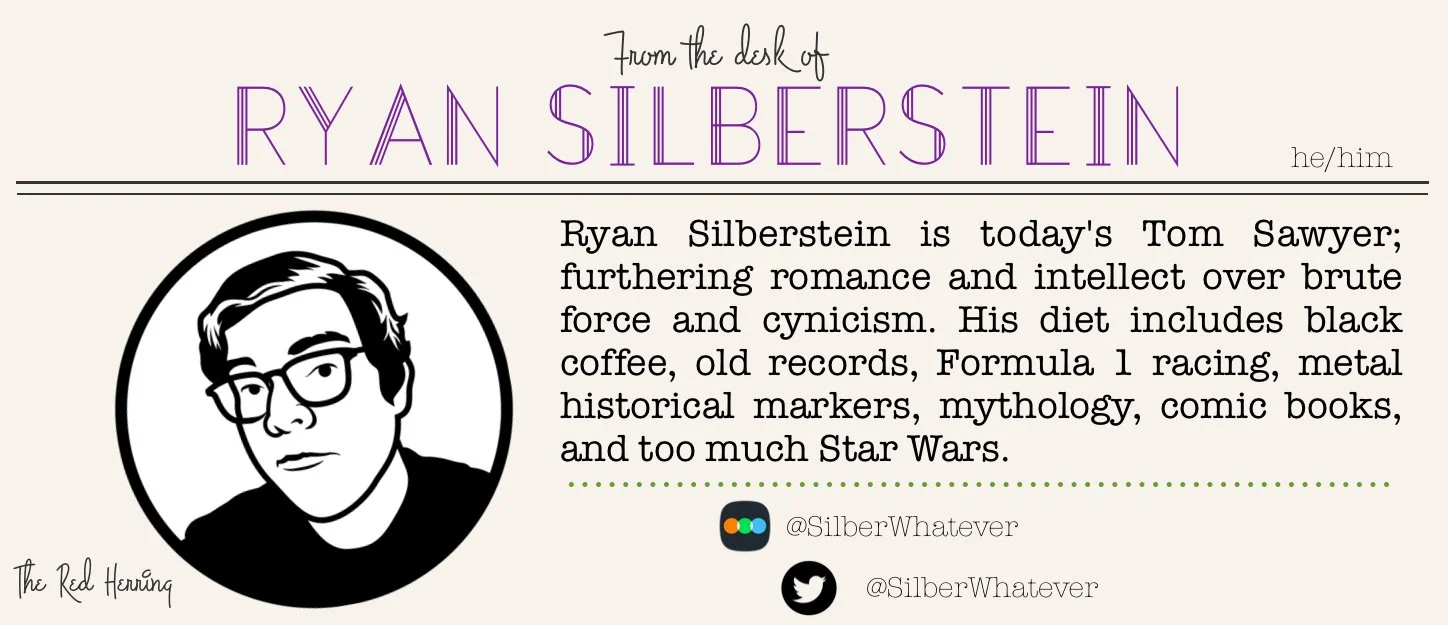Printing the Legend: Do not forsake me, O my darling – HIGH NOON and HUAC
by Ryan Silberstein, Managing Editor, Red Herring
"Are you now or have you ever been a member of the Communist Party of the United States?”
I thought about High Noon a few times while watching Oppenheimer. The classic western was released in 1952, two years before the hearing that would deny J. Robert Oppenheimer a renewal of his security clearance. Watching Christopher Nolan’s new film–especially the third act where the hearing and blacklisting step into the foreground–it wasn’t hard to see Cillian Murphy’s Oppenheimer in the place of Gary Cooper’s Will Kane. A lone man speaking reason, asking his community for help in standing up to an evil he thought was defeated, whether it be the H-bomb or Frank Miller (Ian MacDonald), only to be left alone in standing his ground.
While it is easy to see in hindsight the silliness in being fearful that someone once sent a few dollars to the Communist Party of the United States, movies do a remarkable job placing us in that mindset, especially for the the Second Red Scare. Arthur Miller’s play The Crucible, released the same year as High Noon, is another work that uses a different historical period as an allegory for McCarthyism. But for me, High Noon makes things palpable that even Miller’s play does not because it makes Kane its point of view character. The Crucible feels like we are observing history. In High Noon, the pressure Kane feels to just give up and walk away–that same pressure that those summoned before the House Un-American Activities Committee (HUAC) felt to name names–is palpable.
There are a variety of reasons given for people not helping, from other personal resentments of Kane to “I pay taxes so I don’t have to worry about it.” Sam Fuller (Harry Morgan) even sends his wife to turn Kane away because he can’t bear to say no to the Marshal’s face. The Mayor tells him to leave town; others wish to avoid a gunfight that might damage Hadleyville’s reputation. His community doesn’t rally around him, he is abandoned to be the lone voice in the wilderness. High Noon isn’t a paranoid thriller, with walls closing in around Kane thanks to some mysterious conspiracy, this is a Frank Capra hero living in Pottersville.
Squint at the name Hadleyville, the setting for High Noon, and you can see the Hollywood allegory there plain as day. Carl Foreman, the screenwriter, was blacklisted by the studio heads during production of the movie. Foreman was previously a communist, but had become disillusioned with the Communist Party. He refused to name any other Party members to HUAC, was labeled as an “uncooperative witness” and faced harsh consequences, including exile to Britain and not being recognized by the Academy when Bridge on the River Kwai won a screenplay Oscar. Foreman may have felt like Will Kane, doing the job he was hired to do, sticking to his convictions, and ultimately throwing his tin star in the dirt when his country abandoned him (Albert Einstein tells Oppenheimer to consider that option in Nolan’s biopic).
All of these emotions are underscored by the stark look of the film. Presented in 1.37:1, The Academy aspect ratio, the narrower frame underscores the pressure felt by Kane. Additionally, the gray, cloudless sky emphasizes the uncertainty of Kane’s situation. It makes it feel like there is nothing beyond Hadleyville. There is no way out except that noon train. There’s an artificiality that works well here, and heightens the emotions of the story being told within.
The theme song from High Noon, which starts with the line “do not forsake me, O my darling,” is sung from Kane’s point of view, and is equally about his new bride Amy (Grace Kelly), while the lyrics could also apply to the town of Hadleyville. The song forms much of the score as well, which would go on to be a trend in the genre for the rest of the decade. The song is also heard in Wes Anderson’s latest movie, Asteroid City, which is also set in a stark (fictional) town in the southwest plunged into crisis. The song is darkly hopeful, and captures the very particular lamentation mood that runs throughout High Noon.
There is something elemental about High Noon. While it is a palpable allegory for the Red Scare, it is also universal. In some ways, the individualism of Cooper in this movie makes it one of the purest examples of the American ideal of manhood in the history of cinema. This is how men are brought up here, so see themselves as in the right, no matter the circumstances. There’s a sense of right and wrong that supersedes even his own survival. But for men like Carl Foreman, they can become heroes, by sticking to their principles and protecting others, even if they ultimately have to leave America to do it. Oppenheimer went down with his principles too, his belief in left wing causes and opposition to nuclear proliferation combining to make him a target. America had forsaken both of them, but hopefully now we can at least see who they were without the gloss of a smear campaign over them.



